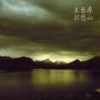 This is the first album from Wang Changcun, who is a member of the China Sound Unit, a group dedicated to investigating aural phenomena in various urban centers. Blurring the distinction between noise and the avant-garde, it also marks the first release of a Chinese composer by a Western label with international scope.
This is the first album from Wang Changcun, who is a member of the China Sound Unit, a group dedicated to investigating aural phenomena in various urban centers. Blurring the distinction between noise and the avant-garde, it also marks the first release of a Chinese composer by a Western label with international scope.
Of the two tracks on this disc, of more interest is the lengthy opener "Grand Hotel." In this 40-minute composition, Changcun relies on expansive texture to create an ever-shifting landscape. Opening with what could be recycled fragments of broken glass with swelling pitches swimming underneath, before long this gives way to a more mechanical-sounding hum accompanied by rising pitches. After a fade out and then a fade back in, a reptilian undertone fights various effects with whirrs and beeps. More waves of buzzing machinery linger before retreating, and it’s not unlike wandering through a sonic rainstorm, occasionally ducking for cover and at other times making a run for it. Halfway through the piece, a helicopter hovers overhead, yet its motive is unclear. Perhaps it’s a search party looking to rescue wanderers from the storm, or else belonging to some nefarious law enforcement group. Eventually the clouds fade and the sounds drip into puddles. The tranquility is soon shattered when a swarm of insects descends, in turn fed upon by bats that swoop through their repellent mists. Toward the end, the helicopter returns, but this time something is wrong as it groans and stutters, misfires, and for the first time the song comes close to having something like beats. All that’s left at the end is a minimalistic rippling rhythm, with none of the atmospheric noise that permeates the rest of the song. It’s a fine piece, if not terribly different from others like it, but certainly enjoyable.
A little more puzzling is the second song, "King of Image 1995," which is a field recording Changcun taped from a VHS cassette of a man’s funeral attended by singing nuns. As much as I like the music, I’m a little confused as to its inclusion here since Changcun’s manipulations of the source are quite subtle. It might be a little more effective in a different, perhaps documentary, context. Yet as a window into these lives, the track isn’t without its merits.
This album may not be groundbreaking, but it certainly highlights the fact that there is a lot of underground Chinese music yet to be exposed to Western listeners. If Changcun’s work is any indication of its quality, then I’m all ears.
samples:
Read More

